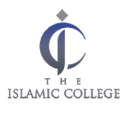HSC215 – Islamic Ethics
Course Overview
This course examines examines the principles and practices that lie at the heart of personal spiritual development in Islam. Students will apply traditional frameworks of Islamic ethics to modern ethical challenges faced by Muslims living in Western society.
Module Info
- Syllabus
- Outcomes
- Material
sYLLABUS
- The key topics covered on the module are as follows:
• Definition and Importance of the Subject
• Seeking Knowledge – An Islamic Perspective
• The Four Major Faculties of the Soul
• Spiritual Awakening
• Repentance
• Self-Conditioning
• Monitoring of Actions
• Reviewing and Accounting of Deeds
• Reprimanding and Punishing
Learning Outcomes
Assessment Mode
Assessment is by portfolio and role play. The portfolio will consist of two assignments of 500 words each. The role play will last 10 minutes and will take the form of a mock scenario in which the student will play the role of a teacher who has to advise someone on particular problems relating to their spiritual well-being. The self-reflective journal of personal development will be marked as a pass or fail. Although the journal is a necessary component of the module, it does not carry any assessment weighting.
Assessment Weighting
Portfolio: 75 %
Role play: 25 %
Each assessment component must be passed in order to pass the module.
Learning Material
Core readings
Amini, I. (1997). Self Building. Qum: Ansariyan Publications.
Khomeini, R. (2003). Forty Hadiths: An Exposition of Ethical and Mystical Traditions. Tehran: The Institute for Compilation and Publication of Imam Khomeini’s Works.
Khomeini, R. (2008). Combat with the Self: The Greater Jihad. Translated from the Persian by M. Legenhausen and A. Sarvdalir. Tehran: The Institute for Compilation and Publication of Imam Khomeini’s Works.


